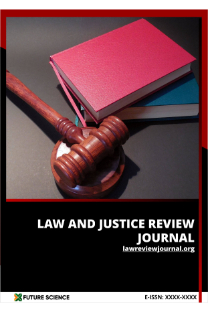Privileged rights of Turkish workers in EU provided by decision no. 1/80 of the association council in the light of court of justice of the European union case-law
___
Alexander W., Free Movement of Non-EC Nationals, A Review of the Case-Law of the Court of Justice, 3European Journal of International Law (1992), p. 53 et seq.Hanf D. and Dengler P. Accords dassociation, Commentaires Mégret, Le droit de la CE et de lUnion européenne, Vol. XII(Relations extérieures ), Brussels, 2004.
Hansen R. Migration to Europe since 1945: Its History and its Lessons, (2003), The Political Quarterly, vol. 74, supplement 1.
Özcan V.Germany: Immigration in Transition, (2004) in Migration Information Source Web Site, (Social Science Center Berlin), available at http://www.migrationinformation.org/Profiles/display.cfm?id=235.
Kaya B. Europe en évolution; les fluxes migratoires au 20ème siècle (2002), Editions de Conseil de lEurope.
Lenski E., Turkey and the EU: On the Road to Nowhere?, ZaöRV (Max- Planck-Institut für ausländisches öffentliches Recht und Völkerrecht) 63 (2003), p.77 et seq., http://www.zaoerv.de.
Van der Mei, A. P.The Bozkurt-Interpretation Rule and the Legal Status of Family Members of Turkish Workers under Decision 1/80 of the EECTurkey Association Council, European Journal of Migration and Law,Volume 11, Issue 4, pages 367-382.
Peers S.,Towards Equality: Actual and Potential Rights of Third- Country Nationals in the European Union in Common Market Law Review, 33, (1996),pp.7-50.
Peers S., Case Commentary on Bozkurt, Common Market Law Review, 33, (1996), pp.103-112.
Tezcan E., Le droit du travail et le droit de séjour des travailleurs turcs dans lUnion européenne à la lumière des arrêts récents de la Cour de Justice de la Communauté européenne (2001), Revue de marché commun et de lUnion européenne 445, p. 117-128.
Theele T., Rights of Turkish Workers on the Basis of the EEC/Turkey Association Agreement (2005), in H. Schneider, Migration, Integration and Citizenship: A Challenge for Europes Future, Maastricht: Forum Maastricht, p.139-165.
Wiesbrock A., Legal Migration to the European Union,(Wolf Legal Publishers, 2010).
Vedder C. and Folz H., A Survey of Principal Decisions of the ECJ Pertaining to International Law in 1994, 7 EJIL (1996), 112, available on internet at:http://www.ejil.org.
Internet sources:
Ministry of Foreign Affairs of Turkey www.mfa.gov.tr
Ministry of Labour, Department of Labour Force in abroad,
www.diyih.gov.tr
www.eur-lex.europa.eu
- ISSN: 1309-9485
- Yayın Aralığı: 2
- Başlangıç: 2010
- Yayıncı: Türkiye Adalet Akademisi
The rule of law conditionality of the European union and developments in Turkish judiciary
The enforcement of the principle of non-refoulement in cases mass-influx
The concept of originality from a comparative Perspective
The fifty years of the constitutional court of turkey (1962-2012)
Unrechtsausschluss durch einwilligung in der deutschen strafrechtsdogmatik
